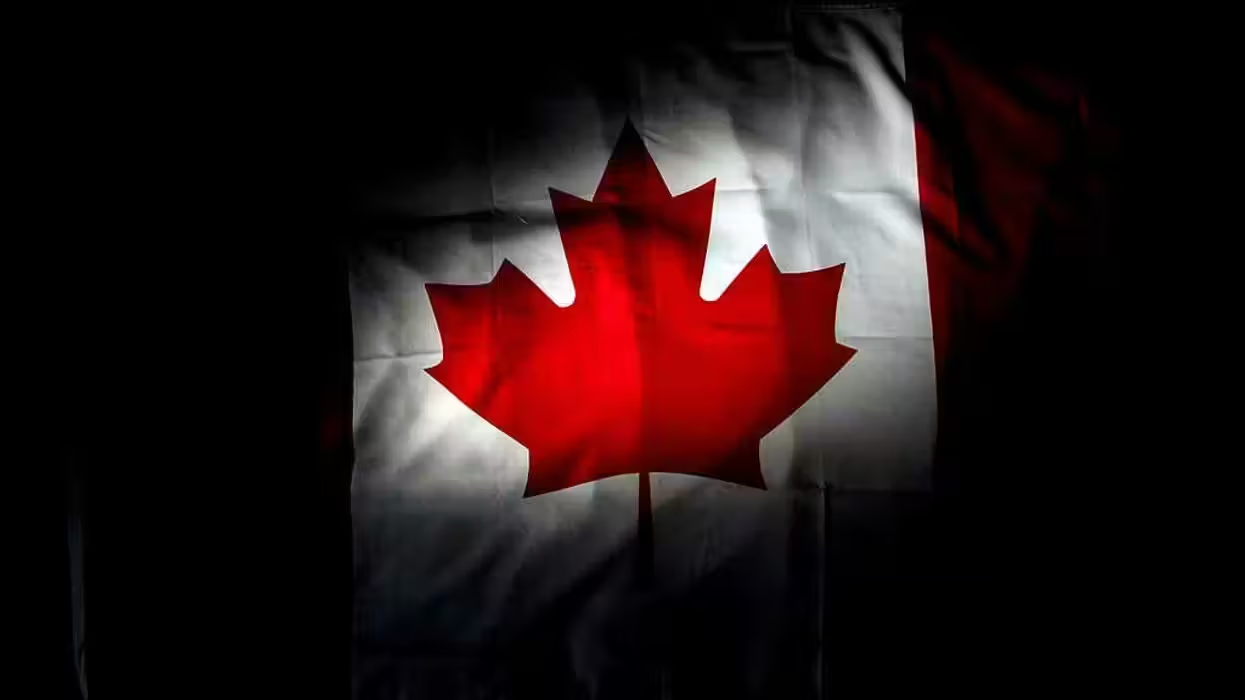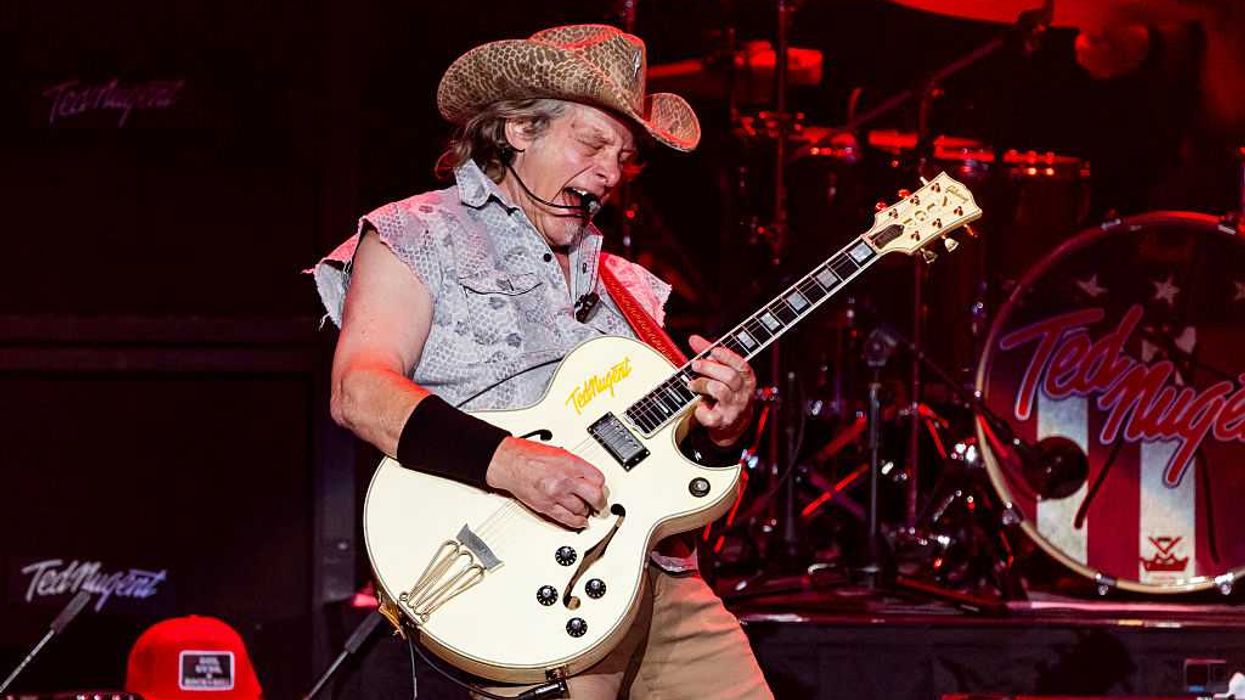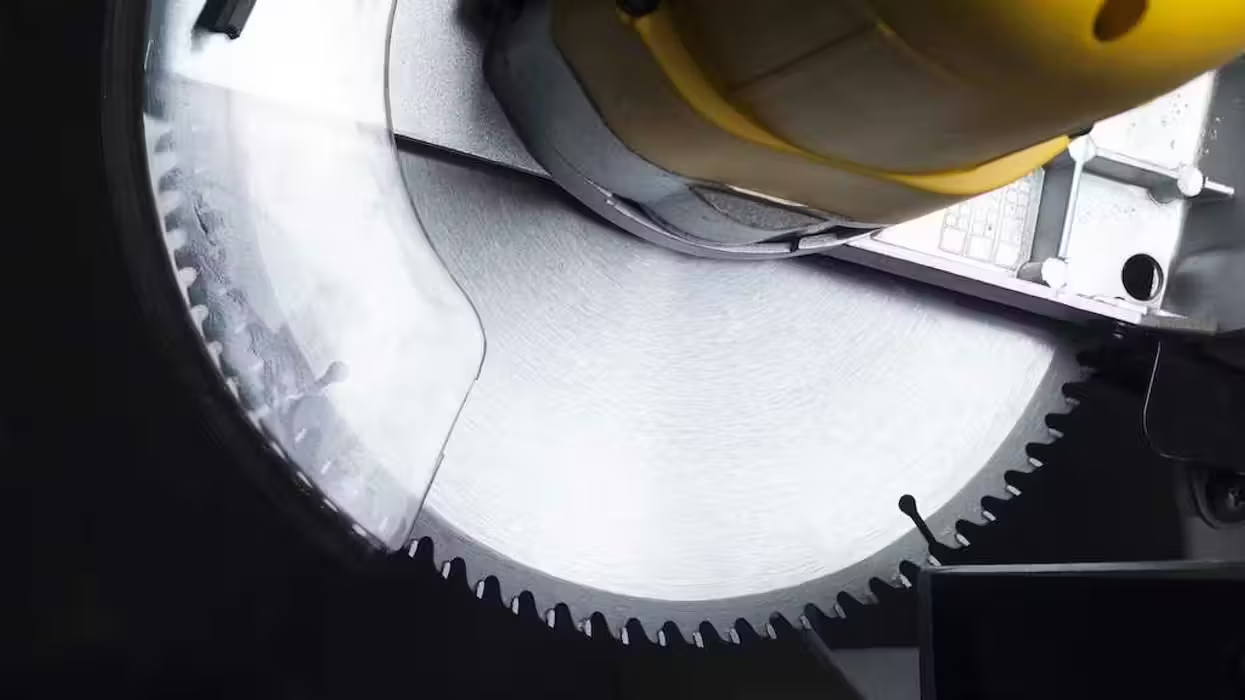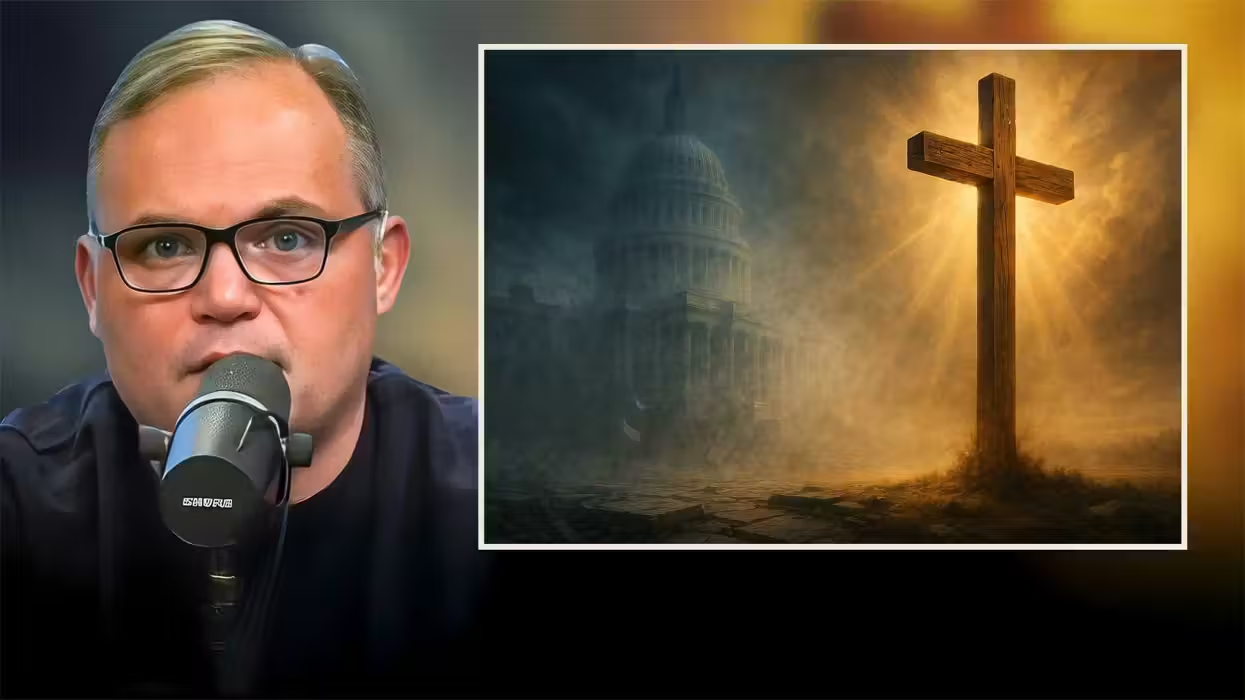
© 2025 Blaze Media LLC. All rights reserved.
"I felt like I was thrown into an episode of COPS."
On the Fourth of July, Chris Barrett was enjoying testing out his newly acquired Google Glass -- those futuristic glasses that can snap pictures, take video, call up email and more -- on the boardwalk in Wildwood, N.J., as he headed back to his car after filming the celebratory fireworks action.
But along the way, he caught a whole different type of action on the crowded strip, filming what he believes might be the first arrest taken on the Glass Explorer edition, the version released to a relatively select few as Google continues to test and refine its beta technology.
"I felt like I was thrown into an episode of COPS," Barrett, a documentary filmmaker and founder of the company PRServe, told TheBlaze in a phone interview Monday.
 (Image: Chris Barrett/YouTube screenshot)
(Image: Chris Barrett/YouTube screenshot)
Barrett's video shows a crowd gathering on the boardwalk and captures audio of someone yelling "fight" followed by a chant of "USA! USA!" Then Barrett hones in on law enforcement beginning to arrest a shirtless man, while another, who is clothed, speaks with the cops.
 (Image: Chris Barrett/YouTube screenshot)
(Image: Chris Barrett/YouTube screenshot)
The man who seemed to be explaining what happened to authorities while the shirtless man was led away in handcuffs, later hears the clicking of handcuffs himself as he is turned around by an officer, putting his hands around his back.
The man asks what the officer is doing, seeming surprised that he too is being cuffed.
 (Image: Chris Barrett/YouTube screenshot)
(Image: Chris Barrett/YouTube screenshot)
Watch the footage:
Barrett admits that the video of the arrests is actually not that eventful -- there's no footage of a violent fight and the people arrested don't put up much resistance. But the 30-year-old said it's not the content of the video but what it represents that's important.
"This is a step forward in citizen journalism," Barrett said.
In many situations, we've seen how some police officers don't necessarily like being filmed while performing their public duty -- even though, as long as spectators aren't obstructing this duty, they have a right to film and take photographs. TheBlaze has reported in the past about what exactly your rights are when it comes to taking photos or videos of police officers in public.
But unlike whipping out a camera or smartphone, which people are seen doing in Barrett's video, Glass is a bit more inconspicuous. Barrett also pointed out that in serious situations, Glass might be safer than using a hand-held device to document.
"In any serious situation, it's important to have your hands free for self-protection or to get away," Barrett said.
If anyone in the crowd had a gun or had gotten more unruly, Barrett said, "I would have had my full body to get away from there."
He also noted that he wasn't spending his time looking at a screen, but was viewing everything with his own eyes -- and it's that perspective that Barrett captured of the arrest.
"Protection is one very important reason for why Glass is better to film in intense situations," Barrett said.
Barrett included that although he had been asked about the Glass technology when he was seen wearing it in public in the weeks prior, no one approached him about it before the fireworks show. On the boardwalk afterward, only a couple engineering students called him out to talk about his experience with Glass.
"I don't think a lot of people know what it is yet," Barrett said. "Or they know what it is, but not what it looks like."
Barrett explained that once the technology is publicly available and becomes more mainstream, he expects people will have it recording much of everyday life. This could help capture situations that show what actually happened in a car accident to a baby's first steps to riding out natural disasters.
Unlike those who took out their phones to begin filming the arrest once they saw what was happening, Barrett had been filming for about five minutes prior and he just stumbled upon the situation.
"People, not the government, will record their everyday lives," Barrett said of the technology's future. This can include recording for their own legal protection to documenting memories.
"[Glass allows you to] edit your life and keep a record of this," Barrett continued. "I don't know if that's scary or what direction it will go ...but [it gives] us control of our personal life status."
Given that Barrett has been in possession of Glass for nearly a month now, what are his thoughts on what's great about it and what needs improvement?
"The biggest thing that shocked me when I put them on the next day [after first getting Glass] was it told me what the Phillies score was," he said, noting he wasn't sure how Glass knew he was a Phillies fan. He thought it was either his connecting the device to his Google account or location based.
He also was impressed with how it pinged him about an incoming email while he was in the process of drafting another.
"It allowed me to have a quicker response," Barrett said.
A function Barrett hopes Glass will have in the future is a way to show people the device isn't on or at least isn't recording. He said there's currently not a good way to take it off and put it away when you're on the go because it doesn't fold. He thinks maybe the ability to cover up the glass part to show that it's not in use might help address some of the privacy issues that have been brought up with the technology.
(H/T: CNET)
--
[related]
Want to leave a tip?
We answer to you. Help keep our content free of advertisers and big tech censorship by leaving a tip today.
Want to join the conversation?
Already a subscriber?
more stories
Sign up for the Blaze newsletter
By signing up, you agree to our Privacy Policy and Terms of Use, and agree to receive content that may sometimes include advertisements. You may opt out at any time.
Related Content
© 2025 Blaze Media LLC. All rights reserved.
Get the stories that matter most delivered directly to your inbox.
By signing up, you agree to our Privacy Policy and Terms of Use, and agree to receive content that may sometimes include advertisements. You may opt out at any time.






